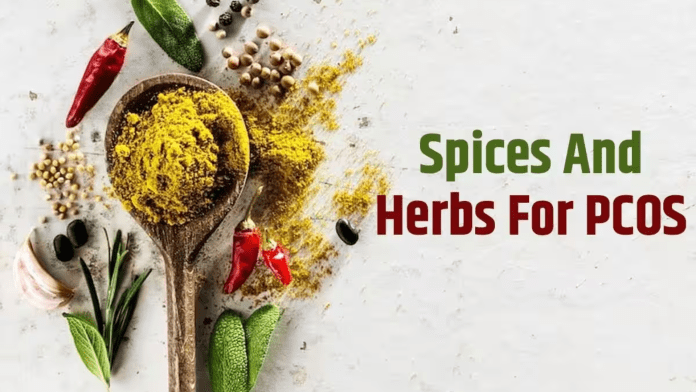Polycystic Ovary Syndrome (PCOS) is a hormonal disorder that affects many women worldwide. It can lead to a variety of symptoms such as irregular periods, weight gain, acne, and fertility issues. While PCOS can be challenging to manage, there is growing evidence that certain herbs and spices can have a positive impact on its symptoms and overall management. In this article, we will explore the power of these secret herbs and spices and how they can transform your life by improving PCOS symptoms.
The Power of Herbs and Spices
- Shatavari
Shatavari, also known as Asparagus racemosus, is an herb commonly used in Ayurveda. It is known for its hormone-balancing properties and can help regulate menstrual cycles and reduce symptoms like mood swings and fatigue.
- Ashwagandha
Ashwagandha is an adaptogenic herb that can help manage stress and improve hormonal balance. It has been found to reduce cortisol levels, the stress hormone, and support the adrenal glands. Ashwagandha also has anti-inflammatory properties that can alleviate PCOS symptoms.
- Turmeric
Turmeric contains a compound called curcumin, which has powerful anti-inflammatory and antioxidant properties. It can help reduce inflammation in the body and support insulin sensitivity, which is beneficial for PCOS management.
- Cinnamon
Cinnamon is a spice that has been shown to improve insulin sensitivity and lower blood sugar levels. Including cinnamon in your diet may help regulate menstrual cycles, manage weight, and improve insulin resistance associated with PCOS.
- Fenugreek
Fenugreek seeds are rich in fiber and have been traditionally used to improve digestion and regulate blood sugar levels. It may help manage insulin resistance and reduce cholesterol levels, both of which are important for PCOS management.
- Spearmint
Spearmint has anti-androgenic properties, meaning it can help reduce the levels of androgens in the body. High androgen levels are often seen in women with PCOS and can contribute to symptoms like hirsutism (excessive hair growth) and acne.
- Holy Basil
Holy Basil, also known as Tulsi, is an adaptogenic herb that can help reduce stress levels and improve hormonal balance. It has antioxidant properties and may help regulate blood sugar levels, reduce inflammation, and support overall well-being in women with PCOS.
- Licorice Root
Licorice root has been used in traditional medicine for its anti-inflammatory and antioxidant properties. It may help regulate hormone levels, reduce insulin resistance, and support adrenal gland function.
Incorporating Herbs and Spices into Your Diet
There are several ways to incorporate these herbs and spices into your daily routine:
- Herbal Teas and Infusions
Brewing herbal teas and infusions using the herbs mentioned above is a simple and effective way to enjoy their benefits. You can choose single herbs or create blends according to your preferences.
- Spice Blends and Seasonings
Adding herbs and spices like turmeric, cinnamon, and fenugreek to your cooking can not only enhance the flavor of your meals but also provide additional health benefits. Experiment with different spice blends and seasonings to find combinations you enjoy.
- Herbal Supplements
If incorporating these herbs and spices into your diet seems challenging, you can opt for herbal supplements. Consult a healthcare professional or a qualified herbalist to determine the right supplements and dosages for your specific needs.
Seeking Professional Guidance
While herbs and spices can be beneficial for PCOS management, it’s important to remember that every individual’s condition is unique. Consulting with a healthcare professional, such as a naturopathic doctor or a registered dietitian, who specializes in women’s health and PCOS can provide personalized guidance and recommendations based on your specific needs.
Final Thoughts:
PCOS can have a significant impact on a woman’s life, but with the right approach, it is possible to manage the symptoms effectively. Incorporating herbs and spices into your diet can be a natural and holistic way to support hormone balance, reduce inflammation, and improve overall well-being. However, it’s important to remember that herbs and spices are not a substitute for professional medical advice. Seek guidance from healthcare professionals to develop a comprehensive plan that combines diet, lifestyle changes, and, if necessary, medical treatments for optimal PCOS management. With the right tools and support, you can take control of your PCOS and transform your life for the better.





